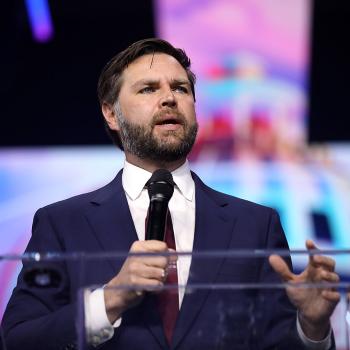A recent review in the Wall Street Journal featured Eli Pariser's The Filter Bubble. Pariser is president of the board for MoveOn.org. Over time he had become Facebook friends with a number of politically conservative colleagues and acquaintances, but he noticed that the Facebook filters hid their comments from view because he was in more regular conversation with people of his own political stripe.
Filters of that kind have a fairly neutral purpose. They are designed to personalize our experience of the web, push information our way that is more likely to be of interest, and assist us in sorting through the overwhelming volume of material that is available on the internet. But, Mr. Pariser points out, it also threatens to narrow and constrict democratic conversation and debate.
As the church relies ever more heavily on the web, it is worth considering the implications of what Pariser calls, "the filter bubble" for the shape of Christian community. Filtering, of course, has always been something of an issue for the church—even when it was all done in "real time." Churches have organized themselves around theological differences and congregations have often taken on the characteristics of the neighborhoods in which they were located, gravitating to groups sharing the same racial and socio-economic profile. There have been times when that has simply happened and, perversely, there have been times when that has been done by design.
But do on-line filters pose new challenges? Arguably, yes.
For all the face-to-face filtering we once did, our orientation to a flesh and blood community made it impossible to avoid completely the people who were different from us. Going to church forced us to wrap our understanding of what we were doing around those differences and moving forward together required us to listen. (However unsuccessful we might have been from time to time.) The reality of the church had the potential, if not the power to challenge our assumptions about the will of God and the shape of our lives together.
The "real-time" character of church required us to sharpen our ability to care and communicate—and it gave us tools to accomplish those tasks. It is hard to underestimate the importance of body language, facial expressions, and the ability to touch someone's hand. Here, again, we were not always successful. But our relationships were measured in time spent together, not in pixels on the screen.
And face-to-face church also required us in some measure to be present to God and one another. If you went to church you could avoid being present of course. You could go through the motions; think about work; wonder about what to have at dinner; and hide from both God and other worshippers. But before the language of connectivity and multi-tasking there was at least some subtle pressure to attend to your surroundings.
In all three areas, things have changed:
We can now rely on filters to create a virtual church tailored to our views or we can actively use them to sift out the discordant voices. Our capacity on-line to edit reality has grown exponentially.
Communication and caring is not impossible in the virtual world. In fact, in some ways technology has made communication and caring infinitely easier. Most of us are now connected across miles and years to people who, if we knew them at all, would have slipped into the past. But flesh and blood contact is not a gift of that world. Cyber connections can leave us with the impression that we have been more present to other human beings than we really have been. And communication is a far more difficult and potentially volatile effort in a world without facial expressions, body language, and the intonation of a voice.
And, above all, it is infinitely more difficult to be present to anyone. The very fact that the success of a website is measured in the number of hits and the length of time spent on any one page is testimony to a world in which we are now everywhere and nowhere at all.
But this is no defense of Luddites. The interesting thing about Pariser's work is that he has underlined perils in the virtual world that were always there in the flesh-and-blood world as well. "Wherever we go, there we are." The real time creators of our virtual world have, not surprisingly, built a world that reflects the virtues and frailties of its real time creators. And a flight from that world would take us right back into a different version of the same struggles.
What we are left with in the new world and old, is a series of challenges. The challenge:
- to think about God and our lives together in ways that are larger than our own experience.
- to listen and to hear one another.
- to let ourselves to be provoked and contradicted.
- to give a courageous, gracious account of what we believe—and a gracious and courageous capacity to listen to those who disagree.
- to find ways to be present to God and one another.
An unfiltered life is an unmanageable life. But embedded in our capacity for filtering is the danger that we will remake the church—and God—in our own image.
5/22/2011 4:00:00 AM





